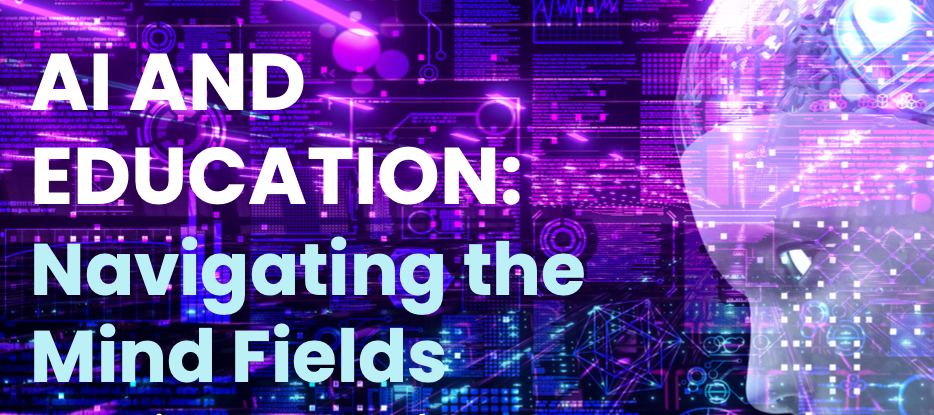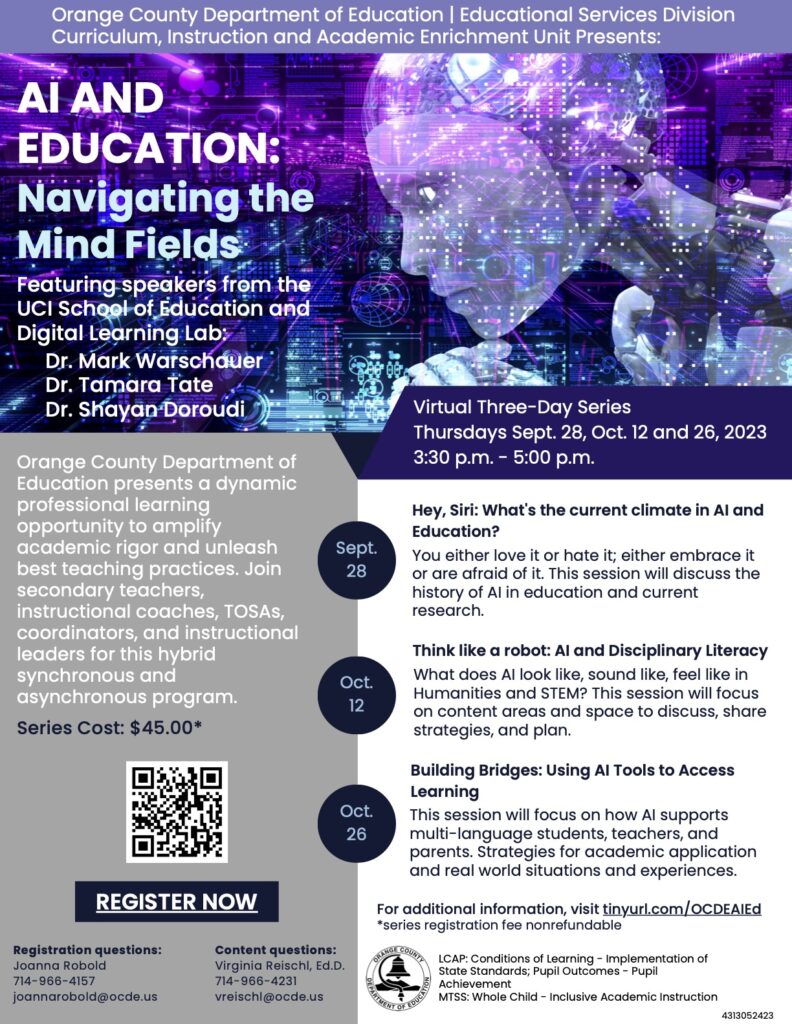
The Orange County Department of Education will present a three-day professional learning series this fall to help educators better understand artificial intelligence and its potential impacts in and out of the classroom.
Hosted by OCDE’s Educational Services Division, “AI and Education: Navigating the Mind Fields” will kick off virtually from 3:30 to 5 p.m. on Thursday, Sept. 28 and continue at the same time on Oct. 12 and Oct. 26. Featured speakers are set to include Dr. Mark Warschauer, Dr. Tamara Tate and Dr. Shayan Doroudi from the UCI School of Education and the university’s Digital Learning Lab.
The sessions will be geared toward secondary teachers, instructional coaches, teachers on special assignment, coordinators and other instructional leaders. Advance registration is required, and the cost to attend is $45 per person.
Intended to spark curiosity
As we noted last month, there’s some anxiety in the education community about the rapid advancement of ChatGPT and other artificial intelligence systems that leverage massive amounts of data to generate human-like responses to text prompts. But OCDE Humanities Coordinator Virginia Reischl believes the technology also has the potential to benefit teaching and learning.
“I hope this fall series ignites curiosity,” she told the OCDE Newsroom. “ChatGPT and Bard and other chatbots are new and shiny, and advances in their technology change every day. The sessions will address current information and will be guided by current research. My hope is that educators will discover answers, build confidence and find solace.”
The first session on Sept. 28 will break down the history of AI in education and present current research. Part two will focus on more specific content and provide a space to discuss, share strategies and plan. The final session on Oct. 26 will examine how AI supports multi-language students, teachers and parents, and it will showcase academic applications and real-world experiences.
‘Knowledge is the key’
For those who remain troubled by AI-powered language models and what they mean for the future of instruction and assignments, Reischl offers some perspective from a few hundred years ago, courtesy of William Shakespeare.
“One of my favorite lines from Hamlet is from Act II, Scene 2: ‘There is nothing either good or bad, but thinking makes it so,’” she said.
“Hamlet feels like a prisoner in Denmark, both literally and figuratively, and wants to ‘think’ his way out,” Reischl said. “I liken this to our current situation with AI in education. We may feel trapped with this new technology and unsure how to respond to it both critically and ethically; however, knowledge is the key. The more we seek opportunities to learn and understand how to incorporate AI into education, we open doors to possibilities.”
For additional information on “AI and Education: Navigating the Mind Fields,” or to register, visit tinyurl.com/OCDEAIEd. For registration questions, contact Joanna Robold at 714-966-4157 or joannarobold@ocde.us.
Q&A: Weighing the pros and cons of ChatGPT in education

